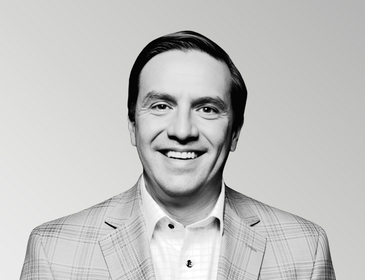Interviewed by Linnéa Jungnelius
What’s changed – and what hasn’t – after 35 years inside corporate America’s most important rooms.
If you think leadership is all spreadsheets and strategy, you haven’t met Peter Browning.
A legendary board director who’s served on more than 14 public company boards, including lead roles at Nucor, Acuity Brands, and now ScanSource, Peter has witnessed a seismic shift in how boards operate, govern, and lead. He’s also steered companies through bankruptcies and cultural transformations, co-authored The Director’s Manual, and proven that true wisdom isn’t just earned in the boardroom – it’s forged in life’s most personal trials.
From navigating a young family through crisis, to scaling Himalayan peaks and surviving boardroom pressure cookers, Browning’s story is a masterclass in what it means to lead with resilience, clarity, and heart.
Life is a contact sport. The question is, how will you deal with it?
Radical transparency: The CEO's superpower
One of Browning’s most powerful lessons is to get on the floor, show up, shut up and listen. At National Gypsum, he turned around a company in bankruptcy not just with strategy, but with humanity:
- Held town halls in movie theaters to announce hard truths
- Used anonymous question boxes to surface hidden issues
- Visited 57 plants and 100 customers to hear unfiltered feedback
- Launched 360 reviews, on himself first
I always felt I had an obligation to communicate. If you don't fill the vaccum, your people will - with fear.
He didn’t just survive the toughest moments, he made sure his people felt seen, heard, and energized through them.
Boards, battles, and the one question that matters most
After 35+ years in boardrooms, Browning is clear-eyed about what matters:
- Boards can't run companies, but they can ask three essential questions:
- Do we have the right CEO?
- Do we have a succession plan in place?
- Are we aligned on strategy?
- Culture is king. No two boards are the same, but chemistry and open dialogue are non-negotiable.
- Disagreeing isn't dysfunction. The best directors are constructivel candid, willing to raise their hands, and challenge the room with humility and insight.
"Leadership is the capacity to elicit the willing collaboration of others toward a worthwhile goal."
What makes boards work today
Despite better structures and diversity, not every board is high performing. True board effectiveness still depends on trust and candor, especially when the stakes are high.
You only meet four times a year. That means every conversation, every question, every vote has to count.
What separates the best boards from the rest:
- Open, transparent CEOs who don’t withhold the hard stuff
- Lead directors who surface quiet voices and steer tough dialogue
- Directors who prepare deeply, ask smart questions, and speak with constructive courage
- Deliberate onboarding for new directors, especially those without prior board experience
The CEO perspective that changes everything
Browning’s decades as a CEO, from leading National Gypsum through bankruptcy to transforming Sonoco Products, deeply shaped his philosophy as a director. He understands the pressures that sit in the corner office.
"You're omnipotent and omniscient - not because you're a genius, but because everyone has to come to you."
That lived experience makes him a stronger board member, especially when it comes to the board’s most critical responsibility: selecting the CEO.
You can't run the company as a board member. So, the single most important thing you do is make sure you have the right CEO, and a successor in mind.
His advice to boards: Don’t rely on annual reviews and make succession a constant conversation. Evaluate behaviors as much as resumes and never assume someone’s ready until they’re in the seat.
Timeless lessons from a life in leadership
While much about governance has changed, Browning believes the fundamentals of effective leadership haven’t. Whether you’re in the boardroom or the back office, the rules are the same:
- Listen more than you speak
- Be transparent, even when it's hard
- Earn trust through presence and follow-through
- Don't lost your humanity in pursuit of performance
Final takeaway
Peter Browning has helped shape the modern boardroom, but his wisdom stretches far beyond governance frameworks. His message to the next generation of leaders:
Stay humble. Stay engaged. And never forget, you’re only in that chair for a time. Use it well.
Lightning round with Peter Browning
 | Purpose is... | your intent, where you're going. |
 | Leadership is... | the capacity to elicit the willing collaboration of others toward a worthwhile goal. |
 | Success is... | family first, last, and always. |
 | Brilliant leaders are... | informed, engaged, and empathetic. They are in touch with themselves and the organization. |
 | Brilliant directors are... | informed, engaged, and constructively participative. They're willing to disagree when it's important in an open, constructive way. |
 | I perform at my best when... | I am energized and fully informed. |
Never miss insights
Stay in the know with our thought leadership
Linnéa's thinking
#BrilliantPeopleAtWork
Gareth Balch: How Fan Data, Audience Growth, and Sports IP Monetization Are Reshaping the Global Sports Industry
Dec 17, 2025

#BrilliantPeopleAtWork
Brian Neider: Managing Partner at Lead Edge Capital on the Strike Zone Strategy Behind $5B of Disciplined Growth
Dec 01, 2025

#BrilliantPeopleAtWork
Dan Migala: Former Legends Co-President & CRO on Turning Creativity into Commercial Wins in Sport
Nov 17, 2025

